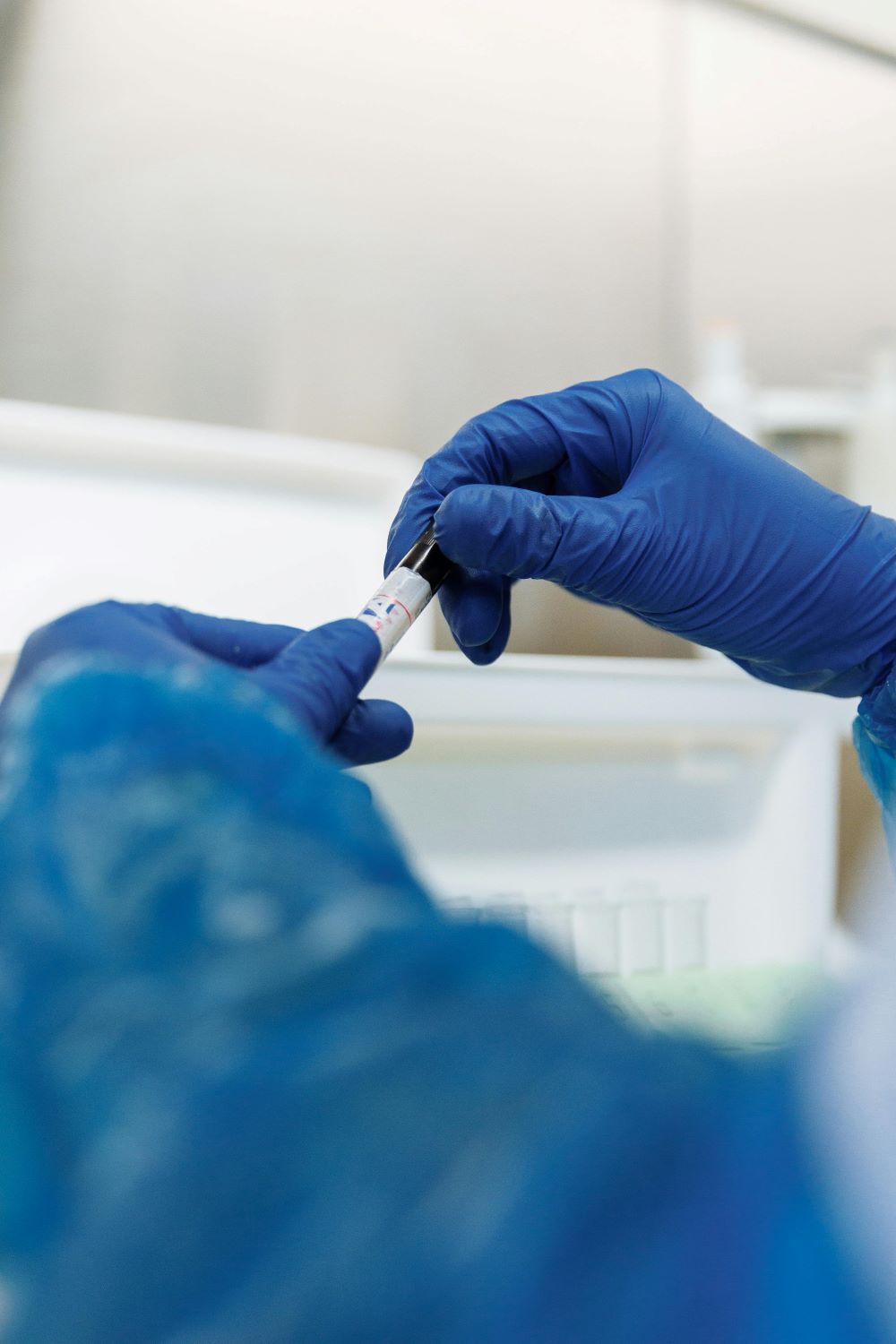The biotech company’s groundbreaking study uses mass spectrometry to accurately identify the disease in its early stages.
A recent study published in the journal Metabolites provides hope for detecting pancreatic cancer earlier than is possible through traditional methods. Metabolomycs, a California-based biotechnology company, used a technique known as mass spectrometry, which identifies and quantifies molecules based on their mass-to-charge ratio, to demonstrate the relationship between cellular metabolism changes and the development of this form of cancer. Most noteworthy, changes can be detected with a simple blood test, meaning individuals who may be considered high-risk can request a blood draw to proactively monitor for cancer biomarkers.
Pancreatic cancer is an especially deadly disease mainly because, usually presenting with unspecific symptoms, it’s difficult to detect early enough for treatment options to be effective. In fact, the American Cancer Society reports that there are roughly 66,000 new cases each year in the U.S., and, of these, nearly 52,000 patients (78%) will lose their lives.
Lead author Dr. Robert Nagourney stated, “Pancreatic cancer is the third leading cause of death from cancer largely because it is rarely caught early. The ability to find the disease in its earliest stages, while still curable, could have a major impact.”
Monitoring shifts in metabolism using mass spectrometry is a game-changer. Scientists believe the method is able to identify pancreatic cancer sooner than analyzing tumor markers through blood testing or using radiography. Moreover, genomic techniques used to measure DNA have been unreliable, commonly providing both false positive and false negatives. Other traditional methods, including the use of imaging, biopsies, or endoscopies are typically employed after there is significant suspicion that the cancer is present, and once it gets to this point, it may be in a later stage. There are five stages in total (0-4, with 4 being the most advanced).

Dr. Nagourney added, “Identifying disease severity using metabolic risk could influence treatment decisions. For over a century, scientists have been trying to connect cancer to cellular energy production and metabolism. But it wasn’t until the development of quantitative mass spectrometry that we could test many of these hypotheses.”
The method aims to measure tiny clusters of bio-chemicals in plasma, and in turn, the research team was able to show how metabolic signatures could predict overall survival rates. Finding that mass spectrometry greatly improved accuracy, the team reached the conclusion that pancreatic cancer is actually a biochemical disorder with alterations in amino acids, blood sugars, and lipids showing the presence of this cancer to be a state of metabolic stress.
The authors wrote, “The pivotal role of the pancreas in human metabolism—sensing nutrient input, regulating critical digestive enzymes and responding to and regulating hexose, lipid and amino acid levels via insulin, glucagon and bioactive enteric hormones—suggests that the study of metabolomics may offer the opportunity to unravel the complex origin of this highly lethal disease.”
Dr. Nagourney explained further, “What we find is that pancreatic cancers establish a new set of rules for making and using energy that propel these malignant tumors to succeed, all at the expense of the cancer patient’s wellbeing. Our findings show that these metabolic tests have the potential to identify pancreatic cancers at the earliest stages when it is still possible to cure the patient.”
The risk of developing pancreatic cancer increases with age with most diagnoses occurring in patients over 60. Known lifestyle risks include smoking, obesity, eating a diet consisting mainly of red meat, processed meat, and saturated fats without sufficient fruit and vegetable intake, and excessive alcohol consumption. Other risk factors include having a family history of the disease, being African American, suffering from chronic pancreatitis, and working in dry cleaning or metalworking (due to the chemicals used).
Common symptoms of pancreatic cancer include stomach pain that spreads to the sides or back, loss of appetite and weight loss, jaundice, gastrointestinal issues, severe itching, and fatigue. Individuals experiencing new or worsening symptoms should consult with a healthcare professional right away.
Metabolomycs’ groundbreaking study offers new hope, especially to those considered high-risk. With continued advancements made to mass spectrometry, accuracy may also be improved even further over time, leading to more effective treatment options and, ultimately, saving lives.
Sources:
Key Statistics for Pancreatic Cancer | American Cancer Society
Groundbreaking New Blood Test Offers Early Pancreatic Cancer Diagnosis Study Says


Join the conversation!